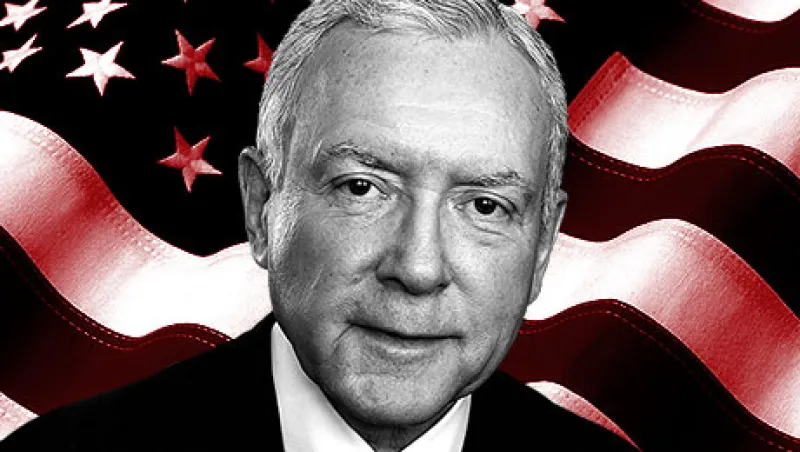Amidst the many controversies brewing in Washington — Russia-gate, the fight over heath care reform in the U.S. House of Representatives, the skirmishes surrounding Judge Neil Gorsuch’s nomination to the U.S. Supreme Court, to name a few — it can be easy to overlook the fact that business is actually getting done in the Republican-led U.S. Senate.
On Wednesday morning that business included a hearing to roll back a key component of the Obama administration’s efforts to expand retirement in the U.S. On March 8, Senator Orrin Hatch introduced a resolution that would repeal the Department of Labor’s January 19th ruling — made the day before the inauguration of President Trump — allowing cities and municipalities to create auto-enrolment plans for private-sector employees at companies that do not offer 401(k) programs to their employees. The DoL had previously issued a ruling green lighting similar programs at the state level.
Hatch’s bill took the form of a CRA resolution, passed in 1996. That resolution, the Congressional Review Act, allows Congress to overturn new federal legislation under certain circumstances.
Senate president pro tempore Hatch and Majority Leader Mitch McConnell characterized the DoL actions as an example of executive overreach by the Obama administration.
“Even on its way out the door, the Obama administration pushed forward with more unfair regulations that hurt the middle class,” McConnell said in his introductory remarks. “They tried to advance regulations that threatened jobs and hindered economic growth. They tried to shift power away from people and toward government on everything from education to land management issues. And under the guise of helping more people save for the future, it undercut a system of private retirement savings that served millions of Americans very well for decades.”
Key from a Republican perspective is that these programs would be overseen by states or municipalities and not covered by the Employee Retirement Income Securities Act of 1974 (ERISA), with oversight by the Department of Labor. Instead the authority for these funds would rest at the local level. Hatch and McConnell argue that this means would be pensions would lack protection; they would prefer a centralized system. Hatch in the past has pushed for annuity-based savings programs.
Critics argue that the Republican agenda — which has the support of the Chamber of Commerce and others — favors the insurance and 401(k) industries, not working people. They argue that the systems operated by states and municipal systems have perfectly adequate investor protections — along the lines of state and municipal public pension plans or college savings programs.
Hatch and McConnell made clear they are coming for the state programs next. “Later we will advance another CRA to protect workers from similar efforts at the state level,” said Senator McConnell. “Hopefully, sometime soon, the Senate will pass the original CRA resolution with the one that covered states like California and Illinois,” Hatch said in his remarks. California and Illinois are among the states to have signed into law such retirement savings programs, and many other states are studying the issue.
One Senate Democrat to speak out against efforts to repeal the DOL rulings was the junior Senator for Hawaii, Mazie Hirono. Unlike her Republican colleagues — who argued that the private retirement programs were taking away investor protections — Democrat Hirono argued that the private-sector pensions are empowering and offer a leg up to low-income working people.
“In Hawaii about 50 percent of private sector workers have jobs that don’t provide retirement benefits,” Hirono said of her home state. “According to a recent survey by AARP Hawaii, 56 percent of working-age people feel anxious about having enough money saved for retirement. For generations, Americans relied on the three-legged stool of private savings: social security, private savings, and a pension from their employer. Those days are gone.”
Hatch, who has a long track record of campaigning for broader retirement savings, is not immune to the irony of Republicans auguring to take rights away from the states.
“I know some have concerns about the federalism implications in rolling back these DOL department of labor regulations,” the Utah Senator said in his remarks. “However, let’s be clear, prior to the implementation of these regulations, states were free to pass laws to encourage opportunities for private sector workers and they will be free to do so after this CRA resolution is signed by President Trump.”
His Hawaiian colleague, however, speculated that the Republican might have ulterior motives. “Cynics would say Republicans are doing this to help some private entities sell more retirement plans to people,” Hirono noted. “However, the reality is that millions of families are not being served. Killing these rules is the latest Republican attack on working people.”
On Thursday morning a joint resolution to repeal the city and municipal ruling passed the Senate, with 50 yay votes and four no votes.






